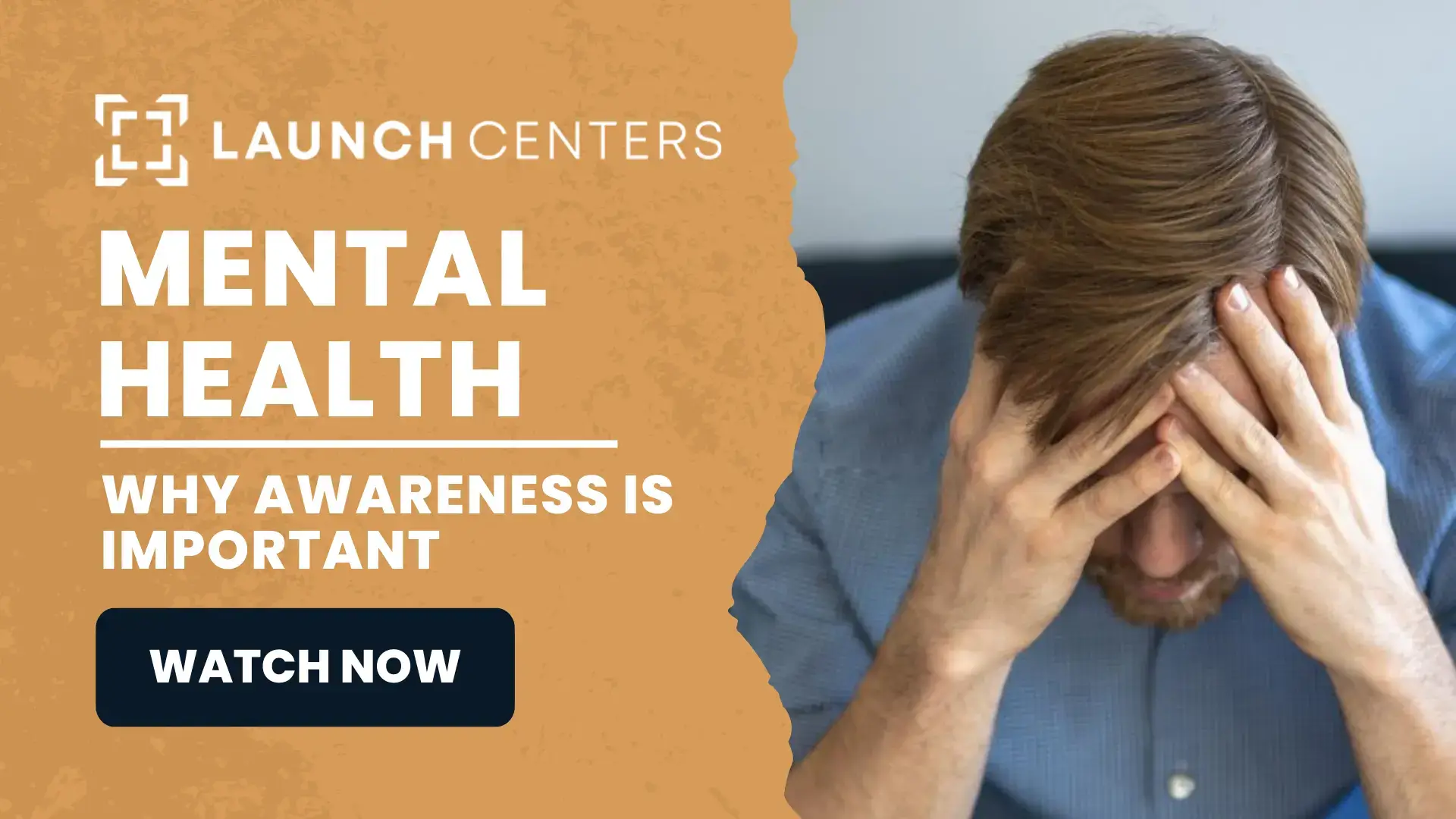Mental health awareness is one of the leading topics in social media and in the news. Long gone are the days of “If you don’t talk about it, it will go away.” Those not understanding that stigma is attached to mental illness want to know, “Why is mental health awareness important?” Education proves important for them and everyone. People need to open up about their own mental illness. As a result, mental health awareness becomes more accepted and understood. Change has been slow in coming. However, developments have been made in the mental health community to prove mental illness is a true medical illness.
What Is Mental Health Awareness?
Mental health awareness helps reduce the stigma around mental health issues. By sharing experiences, vulnerabilities, and concerns, the public can learn that mental illness can be treated. This will help countless others who may be dealing with depression, anxiety, PTSD, bipolar disorder, and more. As awareness raises the number of people seeking help and allows individuals to accept their own mental health problems. Breaking the stigma will allow more people to reach out for help when they feel alone, isolated, or desperate.
Why Mental Health Awareness Is Important
Promoting mental health awareness involves having conversations and leaving the stigma behind. Educating yourself and others about mental health has numerous benefits, including staying aware of your own concerns and providing support for others who may be struggling with mental illness. Through awareness, people can learn how to talk about mental health and feel comfortable reaching out for help. Ultimately, mental health awareness is a two-way street that benefits everyone involved.

How You Can Raise Mental Health Awareness
Getting involved in mental health awareness can be a powerful way to help reduce the stigma surrounding mental health issues and support those who are struggling. One great way to get involved is by participating in mental health awareness month in May. Here are other ways you can get involved:
- Volunteering with mental health organizations like National Alliance on Mental Illness or the American Foundation for Suicide Prevention.
- Sharing resources and information about mental health on social media or in your community.
- Attending mental health events and conferences.
- Forming a mental health support group in your community.
- Fundraising for mental health organizations.
- Participating in mental health advocacy efforts and lobbying for improved mental health policies in government.

Mental Health Disorders That Need More Awareness
All mental health disorders benefit from receiving awareness. However, some are less familiar than others. People still make jokes and take lightly the severity of these mental health disorders. This can cause damage to those who suffer. Joking about mental health carries on the old stigmas mental health awareness tries to dispel. Causing people to suffer in silence only carries on the negativity stigma pushes on people who are struggling. Some of the less understood mental illnesses include:
- Bipolar Disorder: Formerly known as manic-depressive illness or manic depression, bipolar disorder has three different types. This disorder causes difficult shifts in mood, energy, concentration, and the disrupts the ability to take care of daily responsibilities
- Anxiety: Several types of anxiety disorders exist. They all begin with the same problem of having overwhelming fear and anxiety that rules your life. Anxiety is so extreme it affects work, relationships, school, and life in general. Panic disorder, phobias, and social phobias all belong to the family of anxiety disorders.
- Substance Use Disorder: These disorders indicate recurrent and abusive use of alcohol and drugs. People often use them to self-medicate symptoms of mental illness. In fact, about half of people who have a mental illness also deal with addiction to drugs or alcohol.
- Depression: This disorder is a mood disorder. Too often, people mistake it for being the blues or just a bad mood. The symptoms can become so extreme that they interfere with life and the ability to carry out regular responsibilities.
- PTSD: Many people don’t know they have post-traumatic stress disorder, attributing their fears and phobias to normal feelings and standard behavior. Too many individuals go through life with undiagnosed PTSD, leading to severe struggles and issues with making friends, socializing, expressing emotions, or communicating with others.
- Obsessive Compulsive Disorder: OCD can greatly impact an individual’s entire life, especially if it goes undiagnosed and untreated. The obsessive thoughts and compulsive behaviors can consume a person’s time and energy, making it difficult to carry out everyday tasks, maintain relationships, and perform well at work or school.
- Eating Disorders: Eating disorders can have serious physical and mental health consequences and can be life-threatening. Raising awareness about eating disorders can help promote early intervention and encourage individuals to seek help.
- Schizophrenia: Schizophrenia can be difficult to diagnose, often leading to misperceptions and mislabeling by society. This misperception can result in individuals not receiving the proper mental health care they need and, in some cases, may even result in aggressive police intervention. Schizophrenia is often perceived as other conditions such as drug addiction, depression, or personality disorders, which can lead to inappropriate treatment and care.
- Personality Disorders: These disorders cause individuals to have unusual and long-term depressive thought patterns, affecting all aspects of their life.
- ADHD: This neurodevelopmental disorder affects over 16 million people in the US, making it hard to focus, control impulsive behaviors, and struggle to resist addictive behaviors.
How Mental Health Awareness Can Break the Stigma
Breaking the stigma is why mental health awareness is important in today’s world. Knowing you are not alone when experiencing a mental illness is encouraging and leads to strength and commitment in getting treatment for relief of symptoms. Millions of people in the world are dealing with symptoms of a mental illness and having support is crucial in recovery. No longer are people hiding in the shadows, ashamed to speak out and say that they are overly anxious, depressed, or have phobias. People are not considered crazy, mental, or losing their minds when they break the stigma and speak out on mental health.

How Mental Health Awareness Can Lower Police Involvement
Police are frequently called when individuals with mental illness are perceived as violent and dangerous, leading to the public relying on law enforcement to deescalate mental health crises. The American Psychiatric Association reports that most individuals with a mental illness are not violent, and using law enforcement to address these situations reinforces the stigma that they are. In reality, those with mental illness are more likely to be victims of crime rather than perpetrators.
Another study by the Treatment Advocacy Center reveals that individuals with untreated severe mental health disorders are 16 times more likely to be killed during an encounter with police than other civilians. Despite being fewer than 1 in 50 adults in the United States, people with untreated severe mental illness are involved in a significant portion of fatal police shootings, ranging from 1 in 4 to as much as half of all cases.
By promoting mental health awareness, the public can be educated before escalating a mental health crisis into a response from police. For individuals experiencing a mental health crisis, police intervention may not be helpful and could even exacerbate the situation, especially for those with schizophrenia. Quickly research local mental health crisis hotlines or you can always call the 988 Suicide & Crisis Lifeline.
What Does A Solid Mental Health Foundation Look Like?
When it comes to mental health, a strong foundation enables you to establish a positive sense of self and cope with daily life stressors. You can maintain healthy and productive relationships, remain motivated, and physically active, and achieve your full potential. Furthermore, you can contribute to your community and be more productive in school or work.
What To Do If You are Struggling with a Mental Health Disorder
Recognizing the importance of mental health awareness is crucial if you’re dealing with a mental health disorder. There’s no need to feel ashamed or stay silent when you need support and encouragement. Reach out to your family and friends, share your concerns and seek their support. Co-occurring disorders, where mental illness exists alongside addiction, can be treated simultaneously by professionals. Although treatment may seem daunting, there are several options available, and trained professionals are there to assist you.
Mental Health Treatment in Los Angeles
At Launch Centers, here in the Los Angeles area, we understand why mental health awareness is important. We house an experienced staff who can help you if you are struggling with mental illness or substance use disorders. Our compassionate staff will help with your individual needs and answer your concerns with encouragement and support for what you are experiencing. Contact us now and get started on the path to healing.






